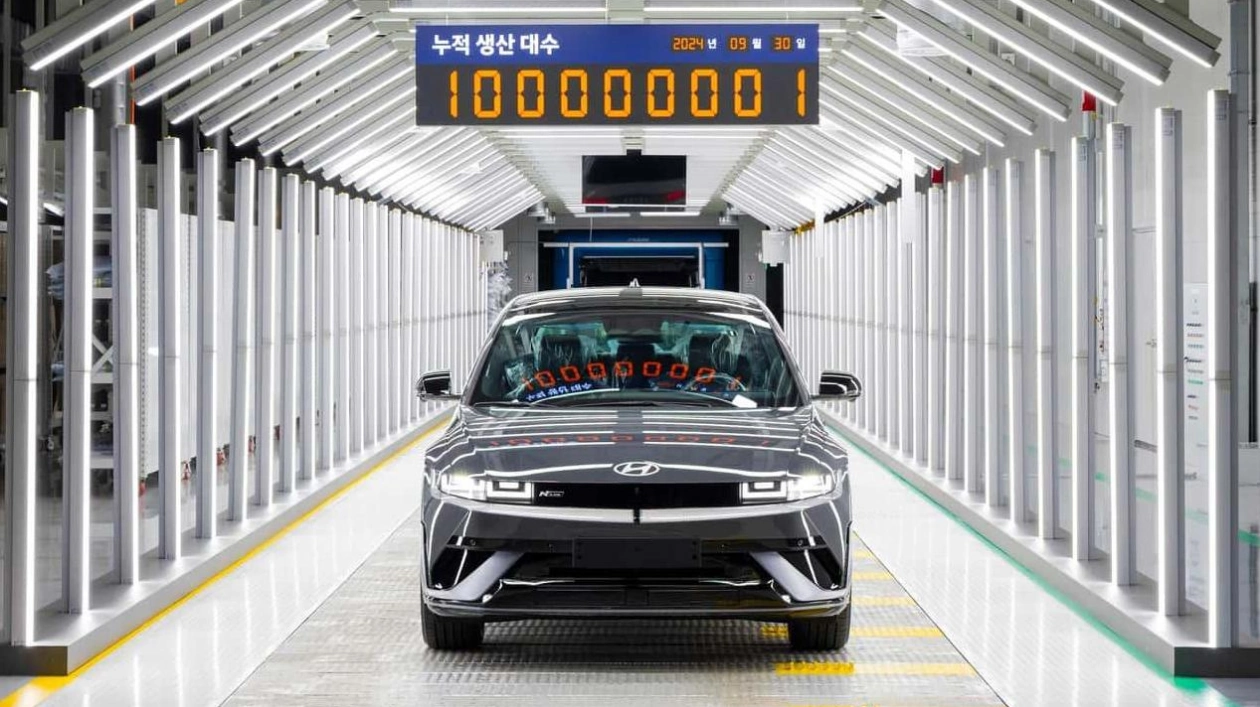Hyundai announced on Sunday that it has manufactured 100 million cars globally since its establishment in 1967. To commemorate this milestone, the company presented its 100 millionth and first vehicle, an all-electric Ioniq 5, to its new owner. The decision to label it as the 100 millionth and first vehicle rather than the 100 millionth car itself reflects Hyundai's dedication to advancing beyond its past achievements, as stated in a recent press release.
Although Hyundai was founded in 1967, it wasn't until 1968 that its first manufacturing plant in Ulsan, South Korea, began operations. This facility is regarded as the cradle of the Korean automobile industry, having produced the country's first mass-produced car, the Pony. The plant now has the capacity to produce 1.6 million vehicles annually.
Hyundai's growth has been substantial since the 1960s. In just 57 years, the company has expanded its operations to include plants in the Czech Republic, India, Turkey, and the United States. Remarkably, it took Hyundai 46 years to reach 50 million units, but only 11 more years to double that figure. Jaehoon Chang, President and CEO of Hyundai, expressed gratitude to the company's global customers, stating that their support has been instrumental in achieving this milestone. He also emphasized Hyundai's commitment to continuous innovation and taking 'one step further' towards the next 100 million units.
While Hyundai may not have a long-standing history in performance or motorsport, its ability to penetrate the automotive industry and become a major player is commendable. Additionally, the company has started to produce some highly enjoyable vehicles. The Veloster N, Hyundai's first true performance car, is a standout, and the Ioniq 5 N is arguably the most thrilling electric vehicle on the market today.
Here's to the next 100 million.






